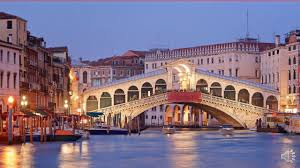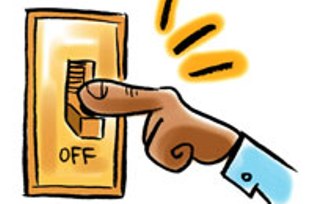Climate Change and Mental Health - part 3
And now for the prequel.
Scenario 4
Climate
change worsens or compounds effects arising from other phenomena. Take conflict
or war for example. Still back home. In a particularly hot year, the hottest in
a long series of hot years, conflict broke out between the community A who were
farmers and community B who were
pastoralists. Gathoni or Mso, as she
is affectionately known, lives in a town that borders the huge mountain she
hopes to climb one day, when she is all grown up. She dreams about it sometimes
when she is hiding behind the bush that is in front of their house. This time
round, she is woken from her childlike reverie by the playful hands of Kamau,
who yells joyfully that he has found her and runs quickly to tap his win on the
huge log which serves as the central point in their game. They are playing hide
and seek.
At
dinnertime, Gathoni often asks her father to tell her a story. Like how they
came to live here. Today, as she asks her father the same question, she
observes a shadow linger in her father’s eyes before he quickly shakes it off.
Her mother looks away as Kimani, the man of the house, takes his daughter upon
his knee and begins to tell her another story, the story of the clever hare and
the lazy hyena…..
Kimani
and Wanja, Gathoni’s parents came to live here after fleeing from the clashes
that broke out after a disputed election. They were tired of the cyclical
violence and decided to pool resources and settle permanently in a place where
they would be safe. This lovely town with plenty of land, a respectable amount
of rain, a lot of wildlife and welcoming people proved to be home for them.
Here they could bring up their family in relative plenty and peace. And so they
settled. And prospered.
But this
year, things were particularly hard. The rains simply refused to come. They had
become a bit less each year but somehow the farming folk had managed to sail
through. This year though the dry season extended to drought. The wild animals
had invaded their farm and it had been reported that some herdsmen had invaded
some farms in the village over the hills.
Wanja
was scared. She abhorred violence and had witnessed first-hand what it could do
to innocent parties.
Still,
she continued to weed her farm daily and pick out the best sweet potato tubers
for Gathoni and Kamau, who loved the yellow ones. They said the more the
yellow, the more the sweet.
 |
| The yellow the sweeter - Gathoni and Kamau's favourite sweet potatoes |
Wanja
dearly loved her children and wanted to give them the gift she herself never
had : to grow up in peace. Only in peace could they be educated and be on their
way to good lives.
But news
coming from the East worried her. Her friend, Wairimu, told her that the
herdsmen with their cattle were advancing this way. She knew that they were
looking for water and food for their animals. She also knew they were armed.
Their animals were their life. And you protect your life at any cost.
For
Wanja, her life was her children.
That
evening, she talked to her husband and though concerned, Kimani could not
immediately offer a solution. He went to sleep hoping that his wife’s fears
were unfounded, or else….Kimani remembered the past he had tried with varying
degrees of success to forget.
Over the
next few weeks, clashes did eventually erupt between the farmers and
pastoralists and both Gathoni and Kamau were hurriedly pulled out of school by
their mother, who arrived one day in school with a torn skirt and bloodied
hand. They fled to the direction of the town and sought refuge in the police
station. Gradually, law and order was restored as the police were poured by the
trucks into the inflamed areas.
Slowly,
life went back to normal, though uneasily. Kimani got his land back but decided
to move to another part of the country, closer home. His children were enrolled
in a new school and both scored good grades and went on to college.
Though
she never talked about it, Gathoni and Kamau noticed that something had changed
with their mother. She was often short and curt and nervous around crowds. She
couldn’t sleep at night and couldn’t go to the market by herself. She was
easily scared by sudden noises.
The
children were worried about their mother, and comforted her the best way they
knew how. They hung around her and made her countless cups of her favourite
sour millet porridge. They tried to create a light atmosphere. They prayed for
her. They hugged her often. They loved her as a child can only love her most
precious possession.
Another
person who noticed these changes in Wanja was the pastor at the neighbouring
church. A qualified reverend, she started visiting Wanja at home and often
brought along her friend, Mama Wanjiku. Mama Wanjiku was a retired counselor
who used to run a big consultancy firm in the city.
Mama
Wanjiku talked to Wanja for months until Gathoni, ever observant and naturally
curious, noticed that her mother could
now go to the farm alone. One day, she asked Mama Wanjiku what she had done to
her mum. As she listened, Gathoni made up her mind that this was the course she
wanted to do in college.
Gathoni
went on to be a stellar student in campus, specializing in counseling in war
torn areas. She learned that her mother had Post Traumatic Stress Disorder. On
gentle questioning, one morning when Mso
was home visiting, she learnt that her mother had been attacked by a herdsman
but escaped after a struggle. Apparently, the incident re-ignited the previously
untreated PTSD Wanja . Below is the picture of a Vitnam Veteran affecte by PTSD.
already had from the previous clashes. Gathoni also learnt of the causative factors of the land clashes.
already had from the previous clashes. Gathoni also learnt of the causative factors of the land clashes.
The
hitherto dependable but now insufficient rains had caused scarcity of water and
food. But what caused the rains to fail?
As she
was to later learn, a phenomenon called climate change did.
Nowadays,
Gathoni runs her own establishment and is a noted and regularly consulted
counseling practitioner.
She also
has a program on TV where she teaches people about climate change.
Her wounds
turned into gold.
She spun
gold out of wool.
Thank
you for indulging me as I tested out my storytelling skills. It might turn into
a novel soon, yes?
I hope you enjoyed it.
And
learnt something new at it!
Climate
change affects every facet of our lives. Sometimes it turns things upside down,
upends them.
But we can turn around the story. We are a resilient race, the
human race.
As
usual, spread what you have learned.
Young readers, arm yourselves with knowledge.
Old readers – thank you for the loyalty
New readers – welcome and have a seat!
Do have
a good, good day.
Be ye
well, all.





Comments
Post a Comment